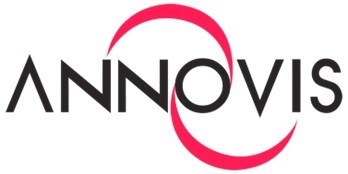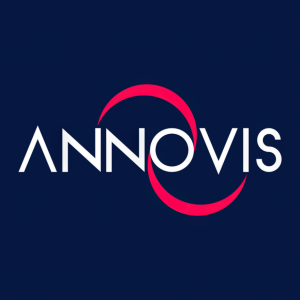Annovis Bio Announces Publication of Phase 2a Clinical Data in The Journal of Prevention of Alzheimer's Disease
Annovis Bio, Inc. (NYSE: ANVS) announced the publication of Phase 2a clinical study data for its drug, buntanetap, in The Journal of Prevention of Alzheimer's Disease. The study indicates that buntanetap was well-tolerated and demonstrated significant improvements in cognition for Alzheimer's patients and motor functions for Parkinson's patients. The company is advancing to Phase 3 clinical trials for early Parkinson's and has received FDA authorization for a Phase 2/3 study in moderate Alzheimer's. Buntanetap is positioned as a potential disease-modifying therapy.
- Buntanetap showed statistically significant improvement in cognition for Alzheimer's patients.
- Buntanetap improved motor function in Parkinson's patients.
- Upcoming Phase 3 trial will enroll 450 early Parkinson's patients.
- FDA authorized Phase 2/3 study for buntanetap in moderate Alzheimer's with 320 patients.
- None.
Insights
Analyzing...
BERWYN, Pa., Oct. 11, 2022 /PRNewswire/ -- Annovis Bio, Inc. (NYSE: ANVS) ("Annovis" or the "Company"), a late-stage clinical drug platform company addressing neurodegenerative diseases, today announced the publication of Phase 2a clinical study data in The Journal of Prevention of Alzheimer's Disease.
The published study, titled 'Buntanetap, a Novel Translational Inhibitor of Multiple Neurotoxic Proteins, Proves to Be Safe and Promising in Both Alzheimer's and Parkinson's Patients', evaluated safety, pharmacokinetics, biomarkers, and efficacy of buntanetap in treating early Alzheimer's Disease (AD) and Parkinson's Disease (PD) patients. The study demonstrated that buntanetap was well tolerated, safe and significantly improved cognition in AD patients and motor function in PD patients.
"Given the short duration of our Phase 2a clinical trial, we are delighted to see that patients treated with buntanetap had a statistically significant improvement in cognition and function," said Maria L. Maccecchini, Ph.D., Founder, President, and CEO of Annovis Bio. "We believe that the effects on cognition and motor function after such a short treatment are due to buntanetap's ability to restore neuronal function through the improvement of axonal integrity, synaptic transmission, and reduction of inflammation."
Cheng Fang, Ph.D., Senior Vice President of Research & Development at Annovis Bio, added: "These fast-acting effects suggest that buntanetap can function as a symptomatic drug to give patients quick relief of their neurological symptoms. Based on animal studies, we also believe that buntanetap can function as a disease-modifying drug in both AD and PD patients as it will continue to reduce the levels of neurotoxic aggregating proteins and preserve neuronal integrity. We are testing this hypothesis further in our late-stage clinical trials with larger patient populations and longer treatment times."
Annovis has begun dosing patients in the Company's Phase 3 clinical trial evaluating buntanetap in early PD. The Phase 3 trial is a randomized, double-blind, placebo-controlled trial investigating the efficacy, safety, and tolerability of buntanetap. The trial will enroll a total of 450 early PD patients to be treated with 10mg buntanetap, 20mg buntanetap or a placebo, on top of their standard of care for six months.
In early October, the U.S. Food and Drug Administration authorized a Phase 2/3 clinical study of buntanetap in moderate AD. The Phase 2/3 study is a randomized, double-blind, placebo-controlled trial investigating the efficacy, safety, and tolerability of buntanetap in moderate AD patients. The trial will enroll a total of 320 AD patients to be treated with 7.5mg buntanetap, 15mg buntanetap, 30mg buntanetap or a placebo, on top of their standard of care for three months.
Buntanetap (previously known as ANVS401 or Posiphen) is an oral translational inhibitor of neurotoxic aggregating proteins (TINAPs), which mode of action leads to a lower level of neurotoxic proteins and consequently less toxicity in the brain. In a Phase 2a clinical trial in AD and PD patients, buntanetap was shown to be well-tolerated and safe, and its pharmacokinetics were found to be in line with levels measured earlier in humans, meeting both the primary and secondary endpoints. Additionally, exploratory endpoints were also met, as treatment with buntanetap resulted in statistically significant improvement in motor function in PD patients and cognition in AD patients. Presently buntanetap is being studied in a phase 3 early PD study and will enter a phase 2/3 study in AD patients later in the year.
Headquartered in Berwyn, Pennsylvania, Annovis Bio, Inc. is a clinical-stage, drug platform company developing transformative therapies that treat neurodegenerative disorders such as Alzheimer's disease (AD), Parkinson's disease (PD) and other chronic and acute neurodegenerative diseases. The Company believes that it is the only company developing a drug that inhibits more than one neurotoxic protein, improves the information highway of the nerve cell, known as axonal transport, reduces inflammation and protects nerve cells from dying in chronic and acute neurodegeneration. Annovis conducted two Phase 2 studies: one in AD patients and one in both AD and PD patients. In the AD/PD study, buntanetap showed improvements in cognition and memory in AD as well as body and brain function in PD patients.
For more information on Annovis Bio, please visit the Company's website www.annovisbio.com and follow us on LinkedIn and Twitter.
Statements in this press release contain "forward-looking statements" that are subject to substantial risks and uncertainties. Forward-looking statements contained in this press release may be identified by the use of words such as "anticipate," "expect," "believe," "will," "may," "should," "estimate," "project," "outlook," "forecast" or other similar words, and include, without limitation, statements regarding the timing, effectiveness, and anticipated results of buntanetap clinical trials. Forward-looking statements are based on Annovis Bio, Inc.'s current expectations and are subject to inherent uncertainties, risks and assumptions that are difficult to predict. Further, certain forward-looking statements are based on assumptions as to future events that may not prove to be accurate. These and other risks and uncertainties are described more fully in the section titled "Risk Factors" in the Annual Report on Form 10-K for the year ended December 31, 2021, filed with the Securities and Exchange Commission. Forward-looking statements contained in this announcement are made as of this date, and Annovis Bio, Inc. undertakes no duty to update such information except as required under applicable law.
Media and Investor Contact:
Nic Johnson
Russo Partners, LLC
(303) 482-6405
nic.johnson@russopartnersllc.com
![]() View original content to download multimedia:https://www.prnewswire.com/news-releases/annovis-bio-announces-publication-of-phase-2a-clinical-data-in-the-journal-of-prevention-of-alzheimers-disease-301645519.html
View original content to download multimedia:https://www.prnewswire.com/news-releases/annovis-bio-announces-publication-of-phase-2a-clinical-data-in-the-journal-of-prevention-of-alzheimers-disease-301645519.html
SOURCE Annovis Bio







